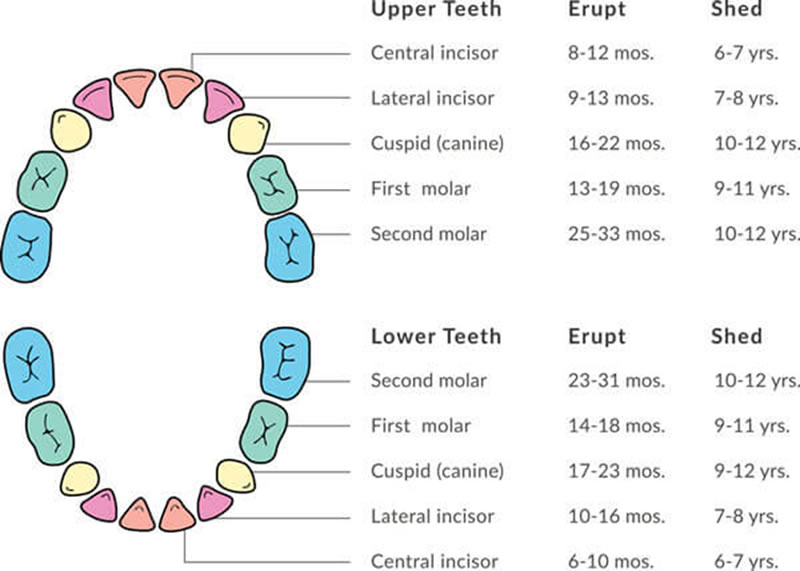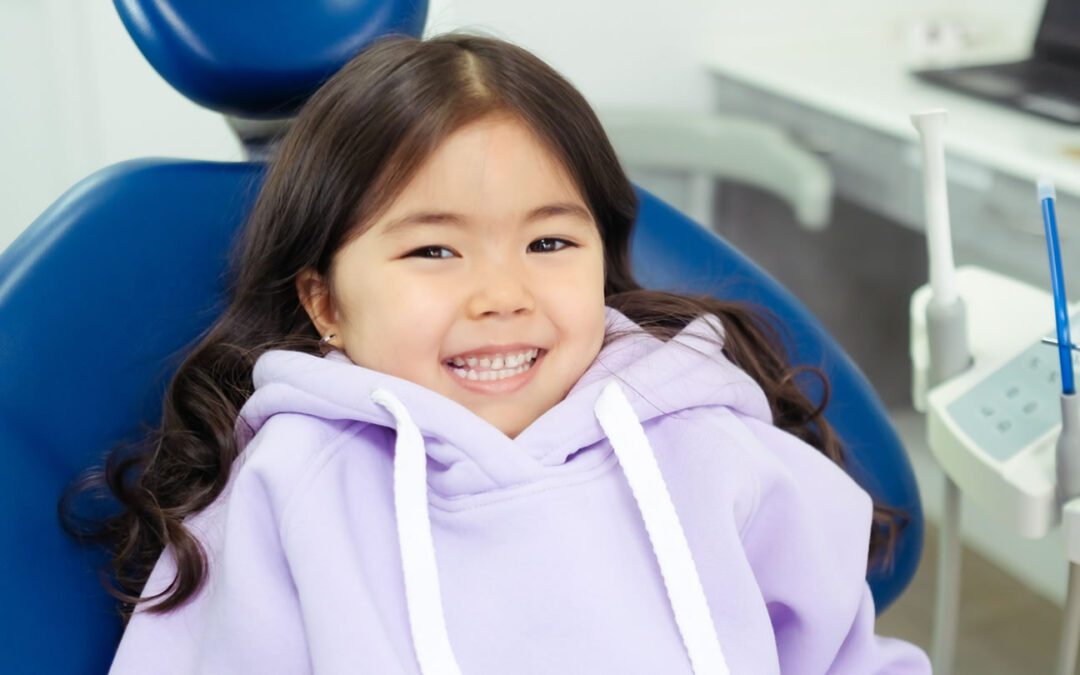(Document originally published on 24th February 2020)
Every parent knows the pain that comes with teething.
The best thing you can do for your toddler is give them something soft and chew on and give them Children’s Panadol and/or Nurofen according to the recommendations for their age and weight.
They should have their full set of 20 baby teeth by about 36 months, so the drooling and discomfort will eventually come to an end.
Diet is the most important factor in keeping these teeth healthy. It’s not just what they eat and drink but how often and for how long. An infant should never be put to bed with a bottle of anything other than water. Even breast milk or Formula has natural sugars, which if left to hang around overnight will cause the type of decay known as “Bottle Caries”.

Even watered-down juice will cause decay. Your child might not like water at first, but they will get used to it. It’s much easier to form good habits than to break bad ones.
That’s also true when it comes to snacks. There are some obvious things to avoid like lollies but things like muesli bars, all biscuits and most breakfast cereals can be very high in sugar. Limiting the frequency of snacks is important because the mouth gets a chance to recover in between times.
Keeping your baby teeth for the normal amount of time is also very important. If these teeth are lost early due to decay, then the permanent teeth often lack space, and the mouth will become very crowded.

It’s also important for the development of speech.
So diet is the most important thing. Then comes oral hygiene.
Fluoride is very important to keep these teeth healthy but it’s important not to get too much.
Children under 3 shouldn’t use any toothpaste because they just swallow it. Then up until about age 7, they should use children’s toothpaste because it has less Fluoride.
A few other things to consider are dummies and thumb-sucking. Both habits change the position of the teeth and even the shape of the developing jaws, so it is important to change these habits at the age of 2.
And lastly. Does your child always breathe through their mouth or snore? This is NOT normal for a child and indicates that their tonsils and adenoids might be a problem. Sleep Apnea is associated with hearing problems and poor concentration. Always breathing through your mouth is associated with changes to the shape of the face and can increase chest and airway infections.
So stay away from sugary drinks and snacks.
Snack only once between meals.
Use the right toothpaste for your child.
Monitor habits like thumb sucking, snoring or mouth breathing and get them checked if they persist.
If you have any concerns or queries regarding your child’s developing teeth, please contact the team at Jacaranda Dental.

